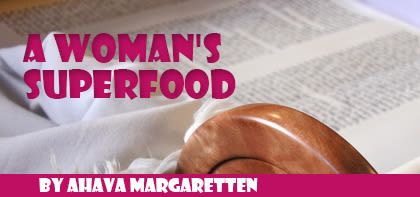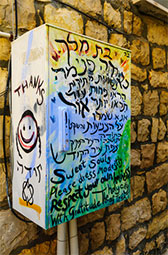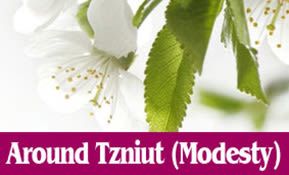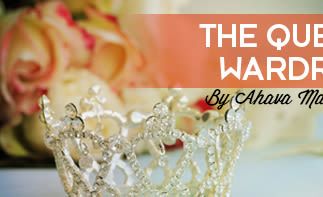
A Woman’s Superfood
If we look closer, we will find the definition of what a righteous woman is: those who did not change their Jewish names, way of dress, and language…

Food for the soul. What is food for the soul? Certainly, Torah learning and mitzvot (commandments) are food for our souls. In the world of nutrition, people talk about “superfoods”. These “superfoods”, such as blueberries and spirulina, have lots of potent nutrients packed into them. A person eating them receives a concentrated amount of vitamins that heal and energize.
What would be a “superfood” for a woman’s soul? All mitzvot feed the soul but Hashem gave men and women their own special “superfoods” that nourish us and bring success in all other areas of serving Hashem. This “superfood” nourishes a woman so intensely that Hashem instructed the first woman Eve to fulfill it from the moment she was created.
The Midrash says that when Hashem created Eve, Hashem uttered a certain phrase over and over again as He created each of her limbs. Hashem could have created her in one snap, but instead Hashem chose to build Eve piece by piece, instructing her again and again: “You shall be a modest woman.” This shows us there is something about a woman’s existence that is intricately tied to fulfilling the laws of modesty.
But modesty is about more than the laws, just as Shabbat is about more than laws. However, in order to  tap into the holy light that Shabbat contains, one must first keep its laws. It is the same way with modesty. Hashem wants all his children to feel closely connected to Him. An easy way for a woman to improve her connection is to fulfill all the laws of modesty. She thereby is able to partake of the special holy light contained in these mitzvot. What does it feel like to be bathed in this holy light? A woman fulfilling all the laws of modesty feels inner tranquility and contentment that no money can buy.
tap into the holy light that Shabbat contains, one must first keep its laws. It is the same way with modesty. Hashem wants all his children to feel closely connected to Him. An easy way for a woman to improve her connection is to fulfill all the laws of modesty. She thereby is able to partake of the special holy light contained in these mitzvot. What does it feel like to be bathed in this holy light? A woman fulfilling all the laws of modesty feels inner tranquility and contentment that no money can buy.
How strong is this holy light? We can get an idea from what the Talmud says in Sotah 11b: “In the merit of the righteous women, who did not change their Jewish names, way of dress, and language, we were redeemed from Egypt; and in the merit of the righteous women, we will be redeemed in the future.” (Daughters of Dignity, p. 48).
Wow! Can you imagine that? It is the righteous women’s merit that will bring us into the Era of Redemption. Powerful light indeed! And if we look closer, we will find the definition of what a righteous woman is: who did not change their Jewish names, way of dress, and language.
I researched this passage a great deal and all the Torah explanations said the same thing: Not changing their names and language means they didn’t assimilate into the indecent Egyptian culture. Those righteous women desired to remain identifiably Jewish and separate. Not changing their way of dress means they remained faithful to the laws of modesty and didn’t succumb to the pressure of Egyptian fashion.
At the end of our lives, which of us will not want the title “Righteous Woman” stamped in big red letters across our report cards? If you think about it, Hashem has given us a relatively easy way to get such a title. There are many styles and colors of clothing out there which are modest and wholesome to wear. All we have to do is make sure our clothes are in line with what is written in the Torah books on modesty, and we’re good to go!
Of course, one also has to act and talk modestly, but I think the main battle in our day is fighting the fashion-obsessed secular culture. We have to be sure we are not influenced by immodest clothing styles and make-up. To prevent that, we should read one of the excellent books on modesty written for women in our generation.
A women might assume she can look at other Torah-observant ladies and simply copy their styles. If they are wearing it, that must mean it’s okay, right? However, some people unfortunately wear immodest clothing thinking that it’s modest. How can you know what is what? Educating yourself by reading a Torah book on modesty such as Rabbi Eliyahu Falk’s Oz Ve’Hadar Levusha is the answer.








Tell us what you think!
Thank you for your comment!
It will be published after approval by the Editor.